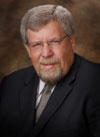This article discusses the Rules of Professional Conduct and what a lawyer can say and cannot say to the news media in a criminal matter.
 Wisconsin Lawyer
Wisconsin Lawyer
Vol. 83, No. 2, February 2010
Question
In the September 2009 Wisconsin Lawyer, you wrote about dealing with the news media during a civil trial. What are the guidelines for a lawyer’s conduct when interacting with the media before a criminal trial?
Answer
Many of the guidelines and limitations that apply to an attorney involved with media contact surrounding a civil proceeding also apply to a lawyer involved in a criminal proceeding. Some rule provisions are more specific and directive with regard to commentary by a lawyer engaged in a criminal proceeding. The language of SCR 20:3.6 provides very specific guidance to a criminal lawyer regarding trial publicity. This guidance is summarized below.

Dean R. Dietrich, Marquette 1977, of Ruder Ware, Wausau, is chair of the State Bar Professional Ethics Committee.
Things you may not discuss. Things that a lawyer may not talk about related to a criminal trial because they are likely to materially prejudice the criminal proceeding include the following:
- the character or reputation of a suspect or witness in a criminal investigation;
- the credibility of a suspect or witness in a criminal investigation;
- the criminal record of a suspect or witness;
- the identity of a witness;
- the expected testimony of a party or a witness;
- the possibility of a plea of guilty to the offense;
- the existence or contents of any confession, admission, or statement given by the suspect;
- a person’s refusal or failure to make a statement with regard to conduct or an offense;
- the performance or results of any examination or tests;
- the refusal or failure of a person to submit to an examination or test;
- the identity or nature of physical evidence expected to be presented;
- any opinion as to the guilt or innocence of a suspect;
- information that the lawyer knows or reasonably should know is likely to be inadmissible as evidence and that, if disclosed, would create a substantial risk of prejudicing an impartial trial; or
- the fact that a defendant has been charged with a crime, unless the lawyer includes a statement explaining that the charge is an accusation only and the individual is presumed innocent until and unless proven guilty.
Things you may discuss. A lawyer may speak about the following in a criminal proceeding at or during the trial:
- the offense or defense involved;
- the identity of the persons involved (unless revealing a person’s identity is prohibited by other law);
- that an investigation of a matter is in progress;
- information contained in a public record;
- the scheduling of any step in the litigation process;
- a request for assistance in obtaining evidence and information;
- a warning regarding the behavior of a person involved, only if there is reason to believe that there exists the likelihood of a substantial harm to an individual or to the public interest;
- the identity, residence, occupation, and family status of the accused person;
- information necessary to aid in the apprehension of a person if the person has not been detained;
- the existence of, and the time and place of, the arrest of a person; or
- the identity of any investigating or arresting officers or agencies and the length of the investigation.
A lawyer also may make a statement that is required to protect a client from a substantial likelihood of undue prejudicial effect from recent publicity not initiated by the lawyer or the lawyer’s client.
As you can see from the above, a lawyer involved in a criminal proceeding has to be very cautious about things that can be said, both before, during, and after the trial. The focus of these rules are to ensure that a fair and unbiased decision is made by the decision-making body, whether it be a judge or a jury. Criminal lawyers are well-served by paying very close attention to the limitations on things they may say and being very cautious when speaking out about a pending criminal proceeding.
Wisconsin Lawyer
